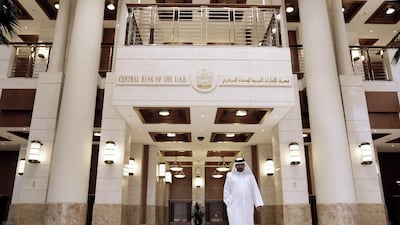The National Committee for Combating Money Laundering and Financing of Terrorism and Illegal Organisations (NAMLCFTC) approved six-risk assessment reports in addition to guidelines for financial institutions, designated non-financial businesses and professions at its third meeting of the year.
The reports relate to terrorism financing, trade-based money laundering, misuse of legal persons, non-profit organisations, lawyers and the gold sector.
They will help "align the legislative and operational frameworks and priorities with the current risks and enhance understanding of risks and to boost cooperation among the competent authorities," the Central Bank of the UAE said in a statement.
The NAMLCFTC also adopted anti-money laundering and countering the financing of terrorism (AML/CFT) guidelines for financial institutions, designated non-financial businesses and professions. The guidelines aim to raise awareness of the importance of adhering to legislation related to financial crimes and the associated risks and penalties for violating them. The guidelines will be published on the websites of the NAMLCFTC and other regulatory bodies to ensure circulation and action by licensed entities.
Both decisions were taken at the NAMLCFTC's third meeting of the year, headed by the Central Bank of the UAE's newly appointed governor Khaled Al Tameemi and attended by UAE minister of state and chairman of Abu Dhabi Global Market Ahmed Al Sayegh.
“Through periodic meetings, we seek to discuss with our strategic partners the latest initiatives ... to strengthening our joint efforts to combat financial crimes,” Mr Al Tameemi said in a statement on Tuesday.
The committee also endorsed a plan to implement a National Strategy for Combating Money Laundering and Combating the Financing of Terrorism, which aims to strengthen cooperation between different entities and limit money laundering.
The UAE, which has strict laws to deal with money laundering and the financing of terrorism, has adopted a number of new measures to fight financial crime.
The country launched a new agency to combat money launderers and those suspected of financing terrorists and organised crime earlier this year.
In November, the ministry of economy also set up an AML department to ensure all non-financial businesses and professionals comply with local laws. In addition, a court was set up in Abu Dhabi to tackle money laundering and tax evasion cases.
The NAMLCFTC also reviewed an updated national action plan for strengthening financial inclusion efforts through measures that aim to improve the access to all segments of society to financial institutions under the supervision of the central bank and minimise the reliance on hawala providers or informal money transfer services providers.
Last year, the central bank instructed hawala providers to register with it to strengthen the oversight of informal money transfers.
The central bank presented efforts to enhance financial inclusion by developing a wage protection system, adopting a product risk matrix developed by exchange houses and remittance intermediaries, and the importance of adhering to anti-money laundering and terrorist financing measures.


